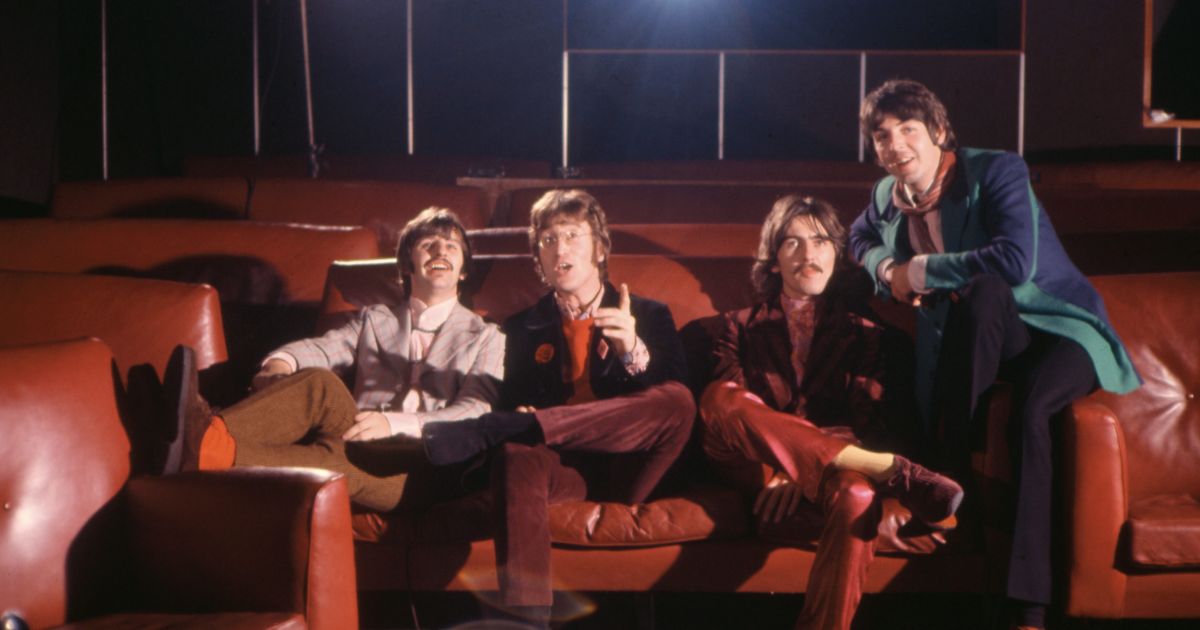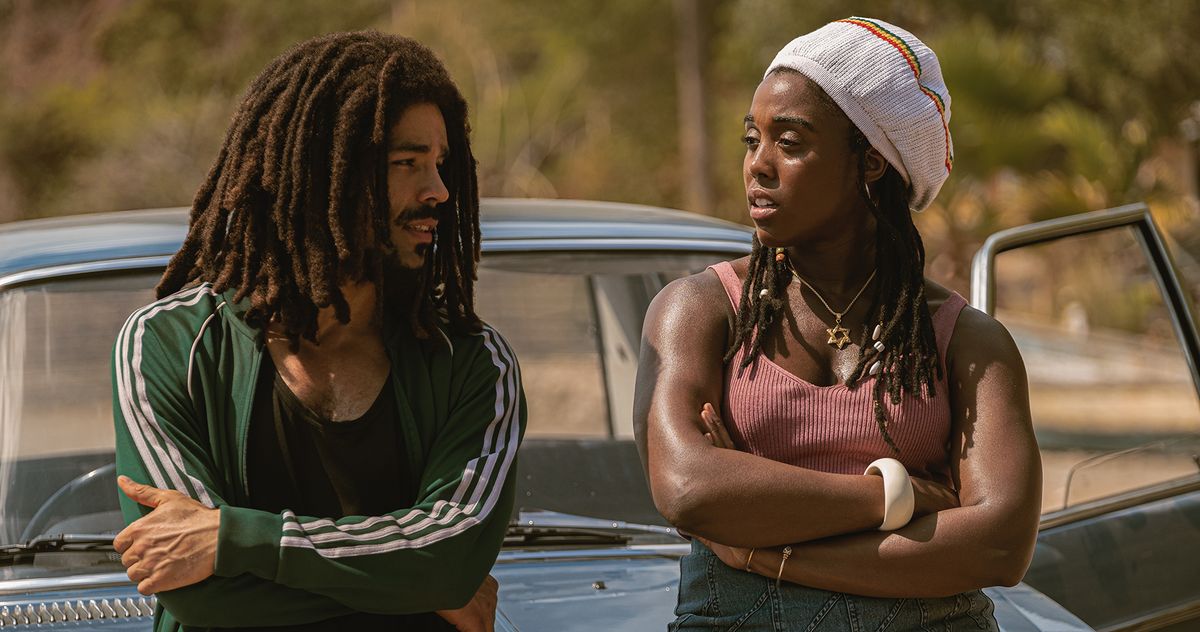
Movie Review: “Women Talking” and debating what to do about Men and their “War onWomen”
“Women Talking” is a parable about feminine power. Framed as a heated debate in search of a resolution of what women can do about men and their age-old “war on women,” controlling, abusing and silencing them, Sarah Polley’s film is about how to confront an increasingly hostile patriarchy when the men in question are not just silencing and controlling thy women in their midst. They’re beating and raping them and their little girls.
Miriam Toews’ novel may be based on a recent historic incident, but Polley’s film unfolds like Greek theater, sounds like Arthur Miller and summons up the heightened emotions of classic drama and pointed modern social ills satire. It is “The Crucible” and “Lysistrata,” reminiscent of “A Handmaid’s Tale” as it passes by “Day of Absence” (the inspiration for the film satire “A Day Without a Mexican”), as a committee of women gather in a hayloft to consider their options.
The title dictates the story, and sets its limits. This is a talking film. But an extraordinary cast headed by Oscar winner Frances McDormand, which includes Rooney Mara, Claire Foy, Judith Ivey and Jessie Buckley make it riveting, and the subject matter turns it into a movie of our moment, one not to be missed.
They live in “The Colony,” an unnamed patriarchal sect in an undisclosed corner of farm country. It is a religious community, a horse-drawn culture in a John Deere, General Electric and Monsanto world. Everyone there lives under the rule of The Elders, who enforce piety, illiteracy and total submission with the threat of excommunication, denial of entry into “the gates of heaven,” upon the women.
The men? We’re not sure of the strictures they’re supposed to live under. They’re barely glimpsed.
But the bloodied bedsheets and bruised thighs we see in a montage speak to a sinister cost of this male”control” — rape. The men have figured out something that they use in agriculture is the ultimate date rape drug, and when confronted by evidence of what’s happening, dismiss it as “wild female imagination.”
But after “we finally caught one of them,” female fury that is positively Greek in its rage is finally unleashed. Now this select group is meeting to consider and vote on their options of what to do next. Do they stay and “fight,” “flee” or “forgive” and just try to get over this monstrous, violent betrayal?
The story is framed by voice-over narration, a girlish voice passing on to a child an account of something that happened “before you were born.” The women of this debate in the past lay out the stakes, the choices and the urgency. The authorities have rounded up and arrested so many of the men that they women have a day to come to a decision before the arrested, and those scrambling to come up with their bail money, return.
McDormand is “Scarface” Janz, older, allegedly wiser and of the “forgive” and let this blow over faction.
Buckley is Mariche, enraged but realistic bordering on fatalistic. Women can’t fight men. They’re stronger. And the women can’t leave, because don’t know how to read, have no idea of the world outside of The Colony and lack even a map to get there. Mariche’s great at cutting the legs out from under every option, but her fellow females know that “all you do is fight,” and take her with a grain of salt.
Foy is in fine fury as Salome, a raging avenger with castration in her eyes. Stay and fight is her hotheaded argument.
When “we have been PREYED upon like ANIMALS,” “forgive” and forget seems a non-starter.
Agata (Ivey) and Greta (Sheila McCarthy) are older, but of the opinion that for their daughters and granddaughters, the only solution is leaving. They won’t use the word “flee” because that’s just another thing that sets Salome and Mariche off.
And Mara plays Ona, the conciliator, a patient, smiling and pregnant woman pouring oil on troubled waters to keep the debate civil and rational and fact-based. She has summoned August (Ben Whishaw), a man who grew up in the colony, who left it to go to college and came back “to help,” to teach the boys. He will take notes, keep the minutes of this meeting. As sensitive, romantic August pines for Ona, of course he says “Yes.”
Other women and girls are here, weighing in, considering this option or that faction, exasperated much of the time as anyone who’s ever had to make a decision by committee often is.
The discussion is rarely less than fascinating as the women wrangle with their “objectives,” “what it is we’re fighting for,” what will make them and their daughters safe and the “power” they feel they need. Religious dogma and doctrine will have to be reconciled, and the finer points of forgiveness and pacificism parsed, all while the clock ticks down to the moment the men start coming back.


The veteran Canadian actress and director Polley — she was in “The Sweet Hereafter,” and directed by the Oscar nominated “Away from Her” — gives her actresses room to live in these characters. Foy and Buckley bring the heat and Mara touches on the idealistic and ethereal.
And Polley takes pains to keep novelist Toew’s emphasis on the myopia of such sects, how these women have to struggle with this decision, this process and this debate because they’ve been kept so uneducated that even our narrator, years later, is at a loss to give an accurate account.
“Where I come from, where your mother comes from, there was not language for” this violent predicament.
I love the way Greta uses the behavior of the horses that pull her buggy as metaphors for this or that factor in their decision and means of making that decision.
Flashbacks recount not only the violence that has visited almost every woman in this debate, they explain why the transgender man (August Winter) in their ranks no longer speaks, make us wonder who actually fathered Ona’s baby and reminds them all of a random, bizarre encounter with the outside world — a census taker driving a pickup truck with loudspeakers on the roof, calling them “out of your houses” to be counted as Davey Jones and the Monkees croon “Daydream Believer.”
Watching and listening to “Women Talking” during another fraught, fractious election year just underscores how damningly topical it is, despite every pain that’s been taken to render it “timeless.” Mormon, Amish, Baptist, Catholic, Hutterite. Muslim or Mennonite, we don’t need to know which particular sect The Colony belongs to, as the shared characteristics driven home here render that irrelevant.
“Power” and “control” through religious coercion, buttressed by the denial of this right or that one, or education or independence itself, is what these women and women everywhere confront in the ebb and flow of what’s disguised as “The Culture Wars.”
Polley has taken a pointed, of-its-moment novel and turned it into an indictment and a plea for civil discourse in a call-to-arms moment. To flee, to fight or to simply keep voting for the people who would enslave you is on the table. And until superstition is addressed and the power not being used — or worse, squandered on whatever fear and outrage the Pied Pipers in charge gin up today — is flexed, every woman is in danger and a failing culture will fall further into an ungovernable abyss.
Nothing’s going to get better without “Women Talking.”

Rating: PG-13 for mature thematic content including sexual assault, bloody images, and some profanity
Cast: Rooney Mara, Claire Foy, Jessie Buckley, Judith Ivey, Sheila McCarthy, Michelle McLeod, August Winter, Ben Whishaw and Frances McDormand.
Credits: Scripted and directed by Sarah Polley, based on the novel by Miriam Toews. An Orion release.
Running time: 1:44





































































